Freedom camping (or free camping) in New Zealand has a long history of open roads, mountain scenery, and pulling up to beautiful free campsites all over the country. In the last decade or so, the New Zealand government has tightened up the act of freedom camping by creating laws that both define and restrict it. Even so, freedom camping is popular as ever and thousands of people – both locals and visitors alike – choose this as their main mode of accommodation when traveling around New Zealand.
After freedom camping for one year all around New Zealand during my Working Holiday Visa, I learned a ton about how freedom camping works in New Zealand as well as some of the absolute best and downright worst parts about this cherished Kiwi pasttime. Read along for all of the pros and cons below.
PROS of Freedom Camping in New Zealand:
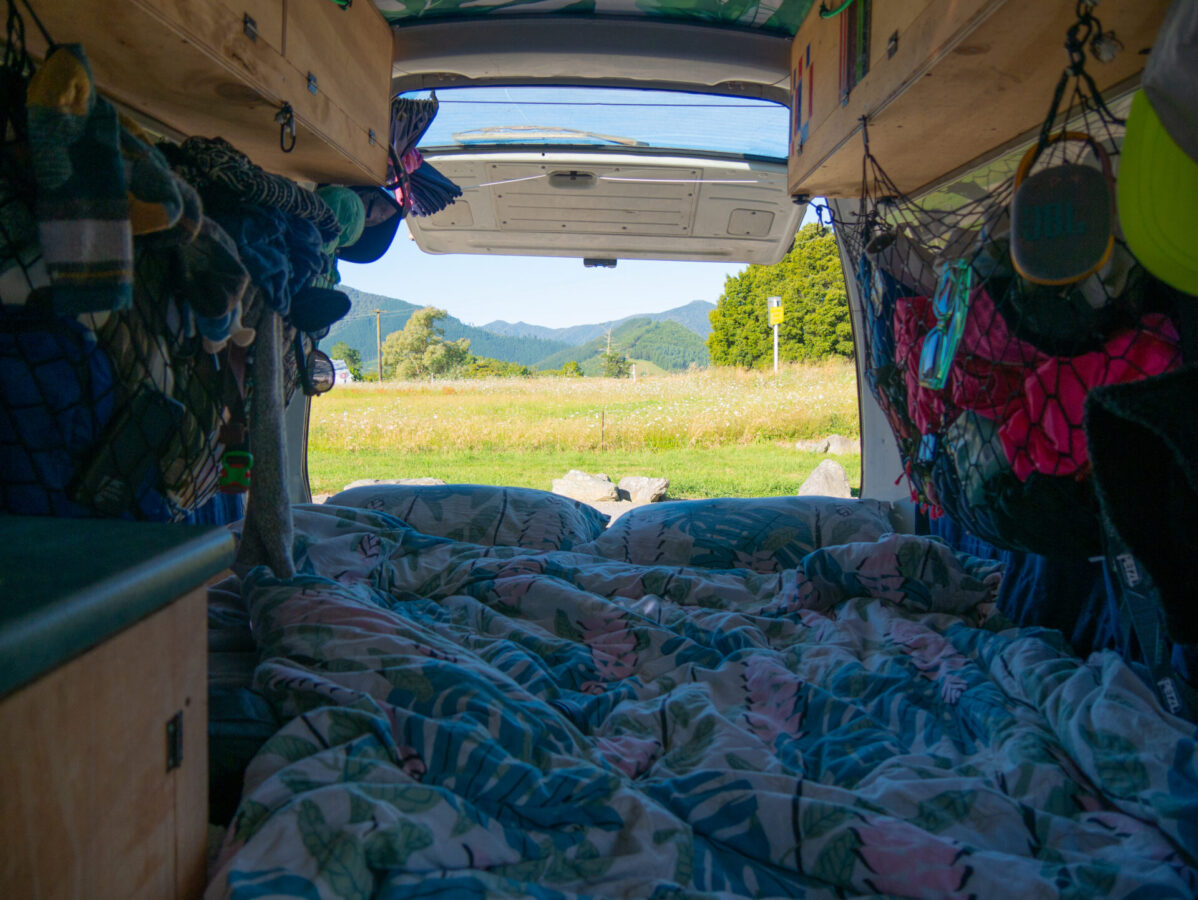
1. Freedom camping is great for saving money on accommodation.
The main benefit of freedom camping is that you can save so much money on accommodation. Paid campsites usually cost $15–30 per night per person, so that adds up if you’re on a long trip. Staying in hostels or hotels is double or more than that.
So, by living in a van and freedom camping, you can save a lot of money. New Zealand is an expensive country — but freedom camping allows you to subvert some of the high costs of living and save money for other things.
2. Van life culture is huge in New Zealand.
The culture of van life here is huge among both locals and tourists, so you’ll see plenty of others traveling around in their vans and you’ll find it easy to meet others doing what you’re doing. Because of its popularity, there is lots of van infrastructure that makes it easy to travel around New Zealand in a van.
3. It’s easy to find free campsites.
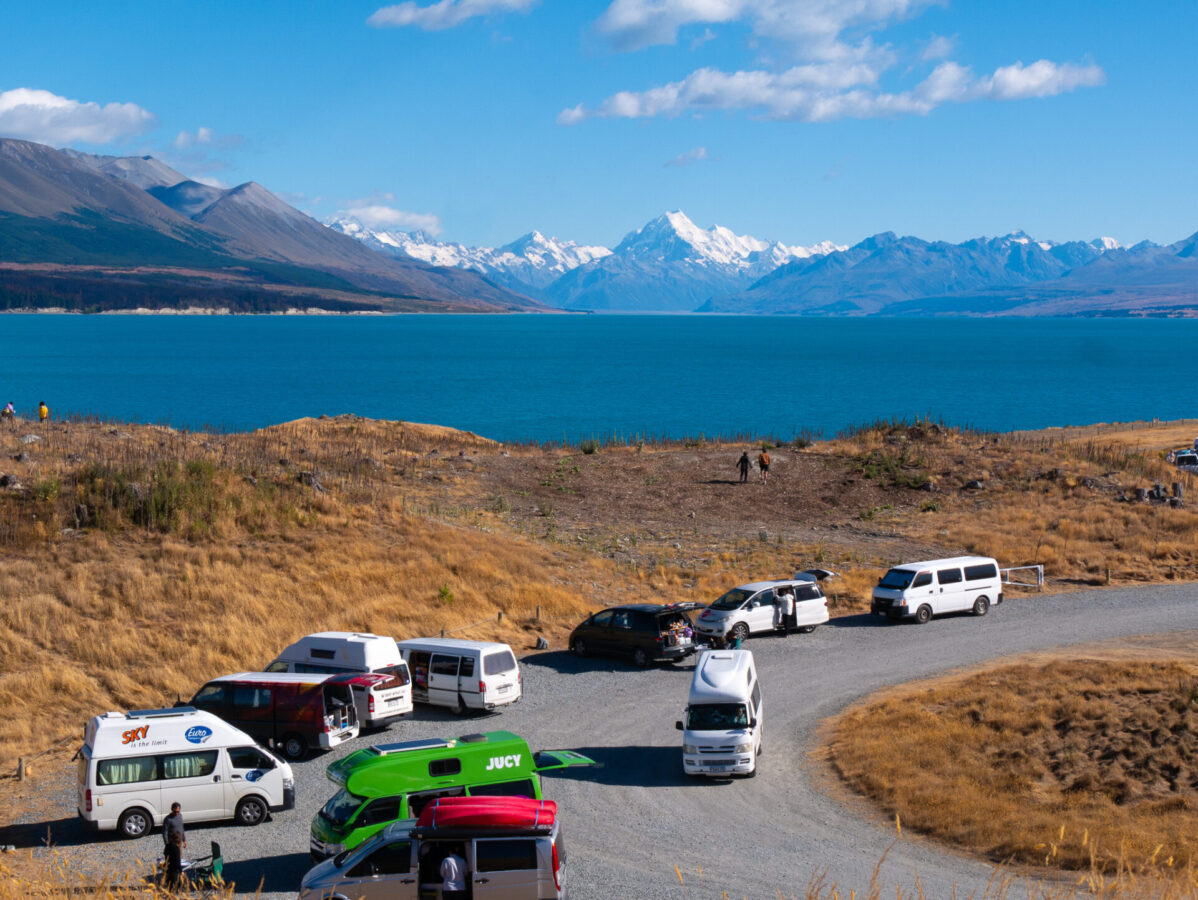
Due to the huge van culture here, there are two very helpful apps that both new and old van lifers alike use for van life in New Zealand. This means free sites, paid sites, places to fill up propane, places to find a dump station and drinking water, places to shower, and even local activities.
These apps, Campermate and Rankers Camping NZ, normally have both photos and reviews made by other users so you can do a little research beforehand to decide if it’s worth the drive. For example, we read reviews to find out if a campsite has a toilet, or if a dump station has fresh water available. We’ve also looked at reviews to decide if an area seems safe or if the parking spot is slanted or if it’s really worth the visit at all.
These apps can also be used offline, so you don’t have to worry about finding a campsite if you’re somewhere without good reception. What’s even better is that you can navigate to your chosen destination easily with one click that brings up the site on GoogleMaps or your navigation app of choice.
4. Freedom camping in New Zealand will get you off the beaten path.
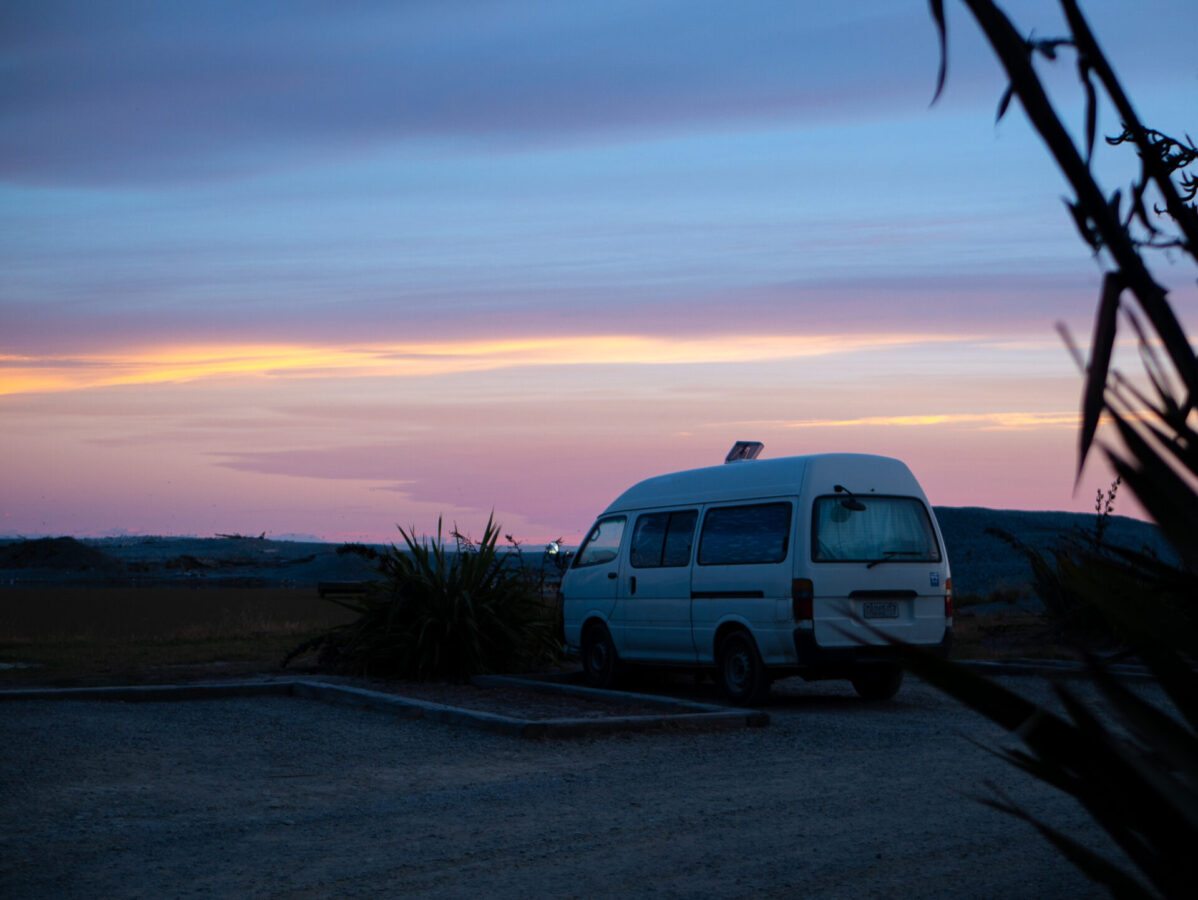
While using these free apps, you can see which campsites are on our near your route. There have been plenty of times we passed through an area and found a random campsite out in the middle of nowhere that we never would’ve visited if there weren’t free sites available. Some of them have brought us to teeny tiny rural towns, or through agricultural areas, into some really nice parks, and nearby beautiful areas of the coastline.
You get to see unique places in rural or “local” areas that you may not have visited otherwise. One example from my experience is Pukehina Beach on the North Island, which is in a neighborhood close to the more popular Mount Maunganui. It’s just as beautiful, but without all the people and busyness. If there weren’t free campsites on this beach, I probably would’ve never known to go there.
5. Self-containment laws help van lifers to be more self-sufficient.
Due to self-containment laws, any vans that want to freedom camp must have toilets, sinks, and trash cans, which make freedom camping without facilities much easier. Trust me, being able to wash your hands, brush your teeth, and clean your dishes in your own van rather than running to a public bathroom is something not to take for granted!
CONS of Freedom Camping in New Zealand:
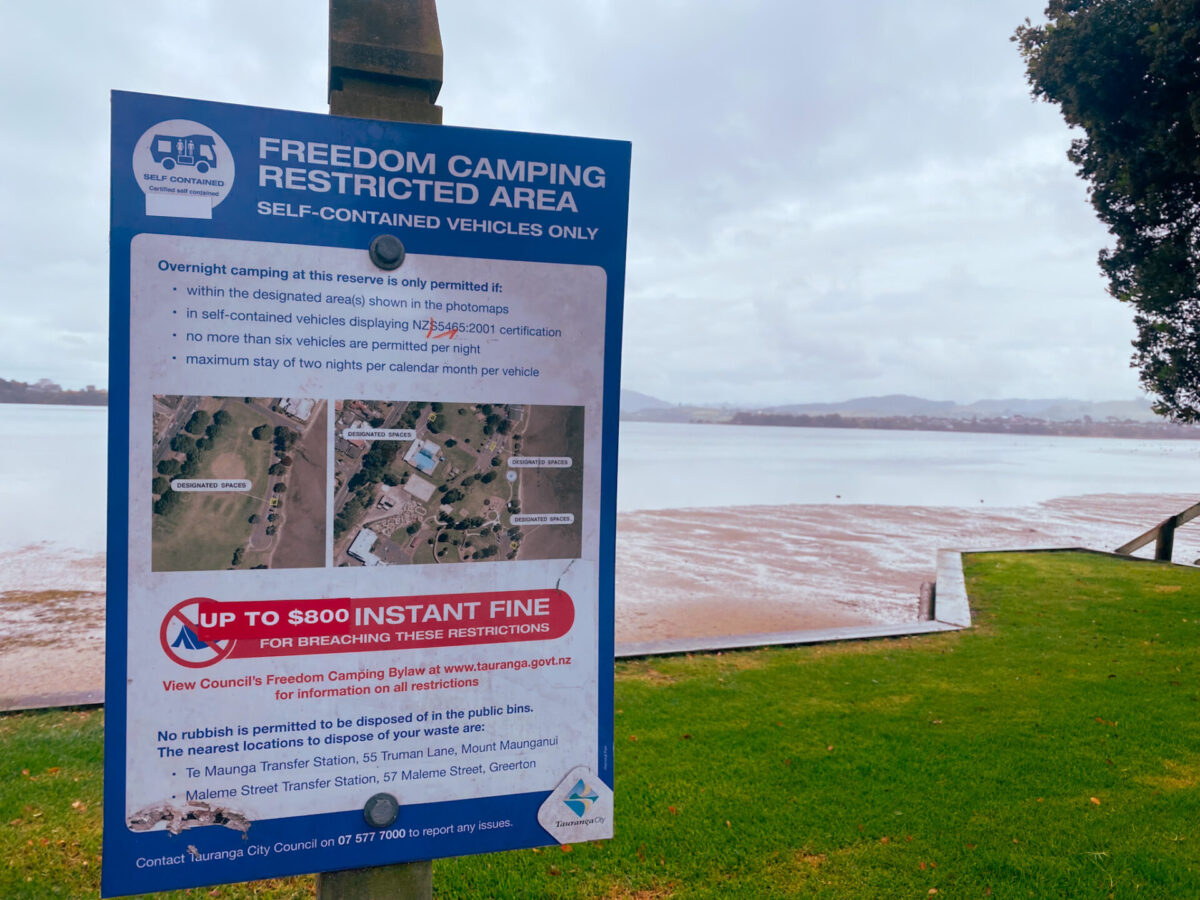
1. The Freedom Camping Bylaws are very restrictive.
Due to a past of freedom camping free-for-alls, the New Zealand government started passing laws to define freedom camping and restrict it to certain areas. Along with this now come rules about not only where you can park your van, but also limitations for how long you can stay at a given site.
In addition to national legislation, each district has made their own bylaws for when and where you can freedom camp. Each district also has their own “enforcement officers” who come around to check in these areas to make sure campers are compliant with the rules. For any infringements to the rules, freedom campers can be fined anywhere from $200–800, depending on the region, for breaking any of the freedom camping bylaws!
With these laws, the ability to freedom camp has been greatly reduced all around New Zealand. For this reason, sometimes there aren’t many sites available or there are no sites at all. In these cases, freedom campers are forced to continue driving to find a site elsewhere or to settle on a paid site if there is one nearby.
2. The self-containment laws are, too.
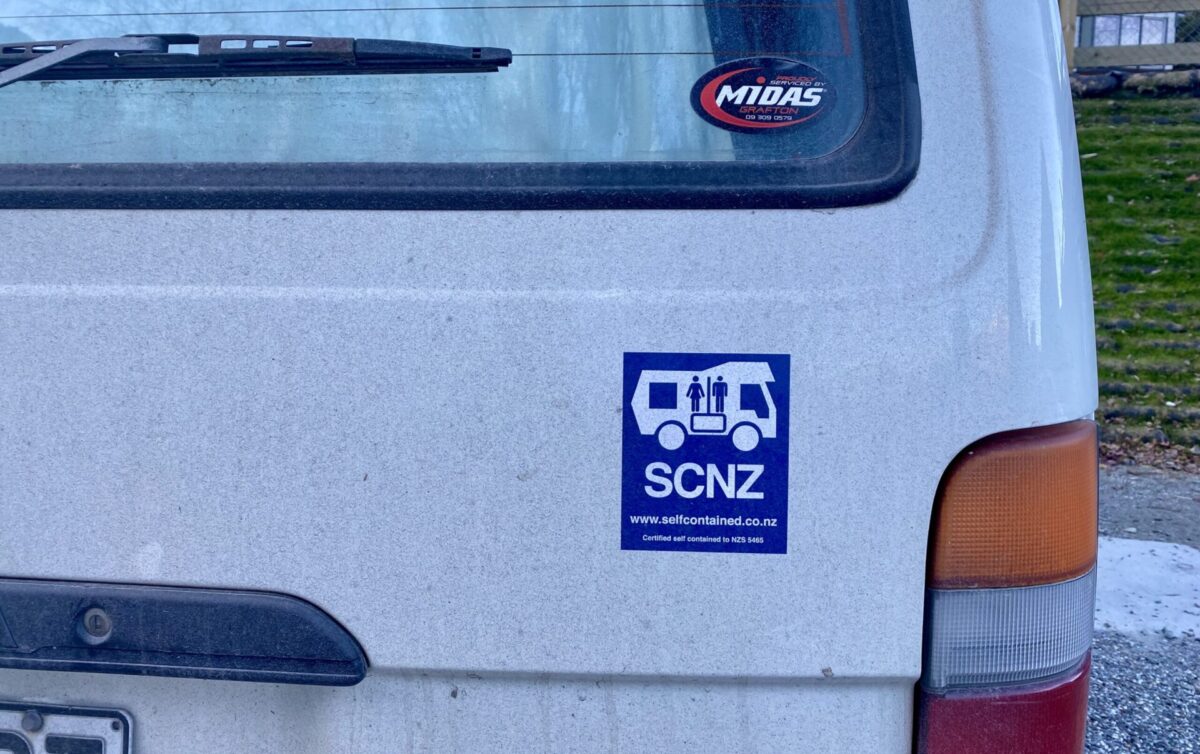
In addition to the Freedom Camping Bylaws in New Zealand, the self-containment laws can be limiting, too. While I include this aspect under the “Pros” above, there are also some cons with this as well.
Firstly, self-containment is limited to vans exclusively, so for the most part, freedom camping is not allowed for anyone wanting to camp in a tent. For that, you’ll have to go to a paid campground.
Secondly, the laws mandate that campers have certain plumbing and trash facilities on board. In previous years, a portable toilet was sufficient to pass certification, but as of June 2025, any privately owned self-contained vans will need to have a fixed toilet to keep their certification (while the deadline for rental companies was the end of 2023). The costs associated with this toilet conversion are quite high (I estimate somewhere between $1000–2000 for the toilet, the installment and the certification fee) and will likely put a lot of the smaller vans off the market.
They say these laws were made with the intention to keep New Zealand clean and prevent freedom campers from spoiling natural areas by leaving their trash or human waste out in the open. However, the more laws they make about freedom camping, the more of a bummer it is for everyone who plans to freedom camp in New Zealand. For the most part, freedom campers nowadays are following the rules and I personally feel that these newer laws are just making freedom camping less accessible and less enjoyable for everyone.
3. Freedom campers get mixed reviews from the locals.
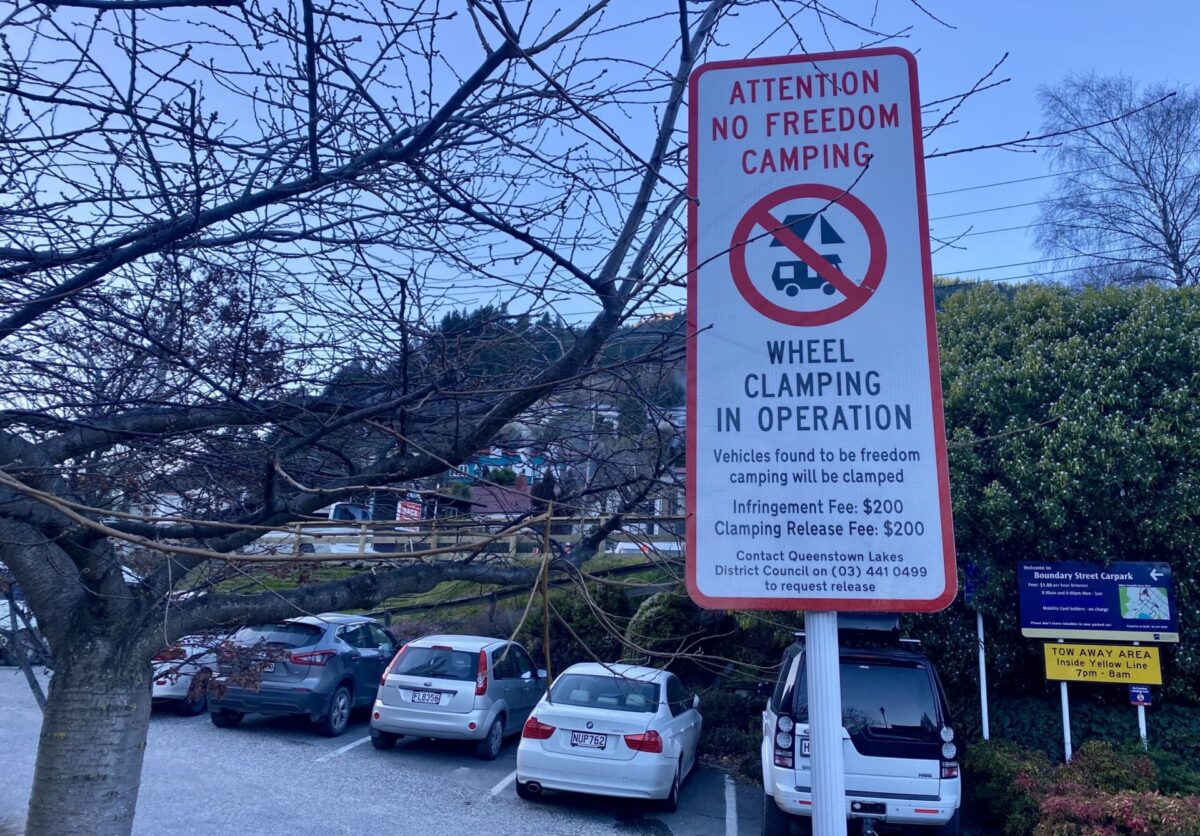
Some folks in New Zealand don’t like freedom campers and associate them with “freeloaders.” I’ve read reviews from freedom campers on the freedom camping apps who wrote about how they had people harassing them in the middle of the night while they were at a free site. Personally, I experienced a very obviously disapproving vibe from the locals one morning after waking up at one of the sites.
In Queenstown, there have been a lot of problems with people leaving trash and human waste at public parks, as well as campers bathing and washing their dishes in waterways. Because of this, Queenstown in general has a largely distasteful view of freedom campers, including one resident who started a petition to ban freedom camping in Queenstown. There are other places around New Zealand with disapproving locals as well.
Other Kiwis are either really curious about the lifestyle or they, themselves, are freedom campers, so these folks tend to have a more positive perspective on freedom camping and want to see it continue as a local tradition.
It’s a bit of a mixed bag, and unfortunately for us nowadays I think there were a few “bad eggs” in the past who disrespected the land and the locals, giving us all a bad name.
4. The upfront costs of freedom camping can be enormous.
Freedom camping can still be expensive if you get a van rental, especially in the peak season. Personally I only think this is worth it if you plan to have the van for less than three months and can get a good rental rate.
If you buy your van, you have to be able to put down a large sum of money for the purchase, plus additional money to update, maintain, or repair the van throughout your tenure with it. While most will be able to sell their van for a good price at the end, that isn’t guaranteed.
Despite that freedom camping is one of the most economical ways to travel around New Zealand, the upfront costs for this lifestyle can be too much for some on a tighter budget.
5. Freedom camping sites aren’t always the best.
I was a little shocked when I started freedom camping in New Zealand after doing loads of free camping back in the States. Here, most free sites are just in car parks and aren’t always surrounded by nice scenery. Sometimes the parking spots are on a slant, and sometimes they are in sketchy areas.
Regardless of the freedom camping situation, New Zealand is still such a stunning country and is definitely best explored by car. If you can bundle that up with your accommodation and live life on the road, freedom camping can be a fantastic adventure. Be sure to check out this post for freedom camping tips for New Zealand. I’ve also written a post detailing everything I’ve learned about van life while freedom camping in New Zealand.
Thanks for reading and have so much fun on your freedom camping trip in New Zealand! Let me know how it went in the comments below! 🙂
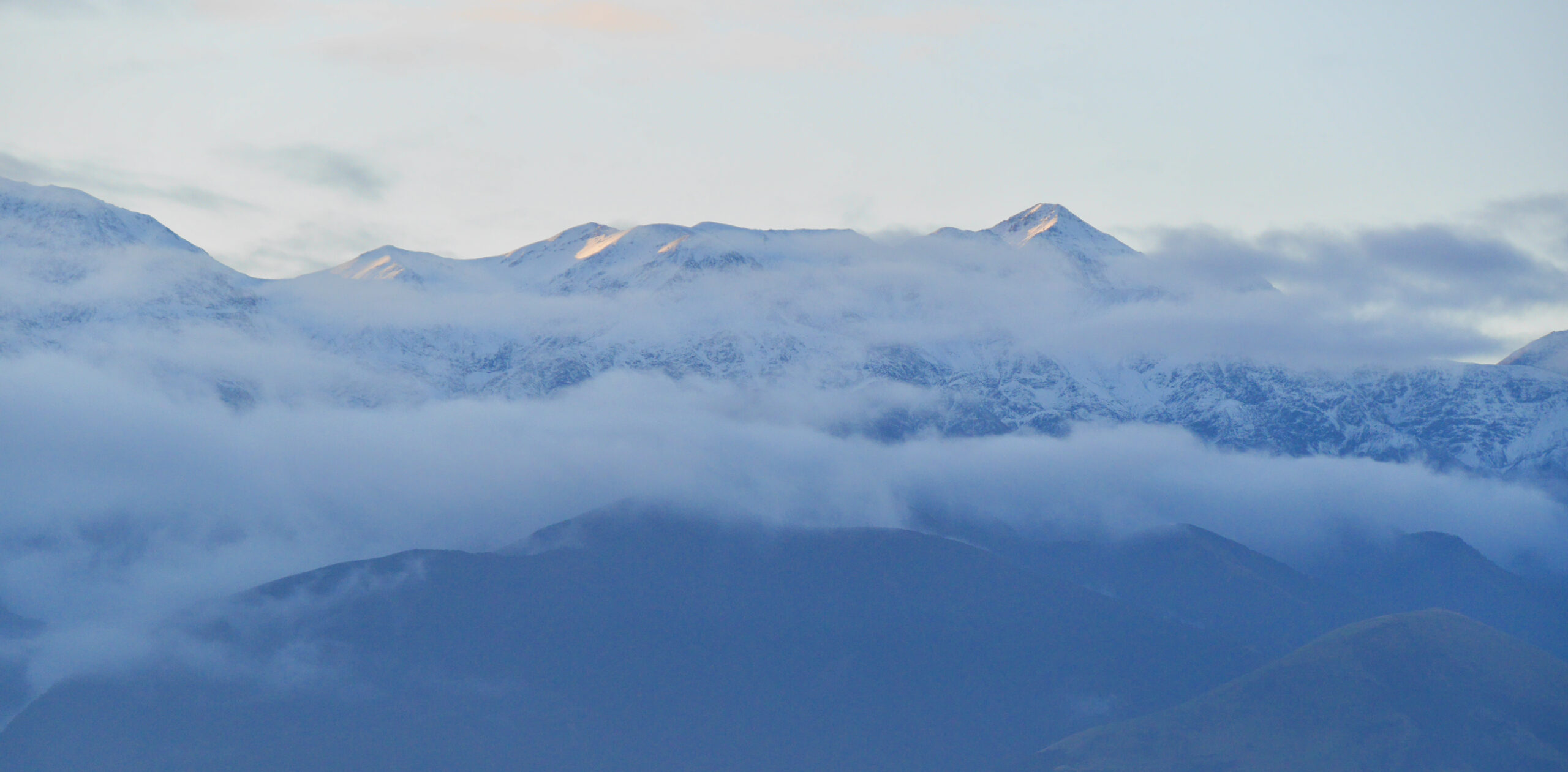

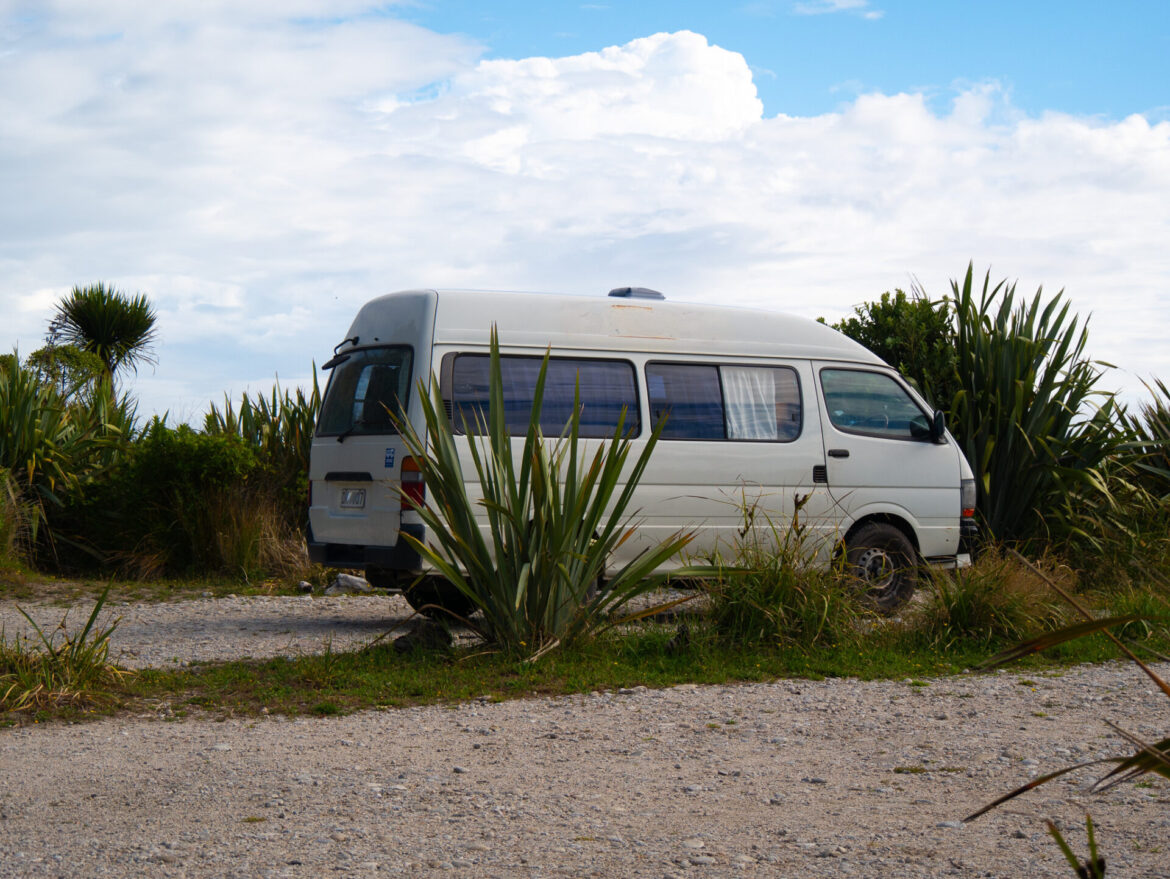
Leave a Reply